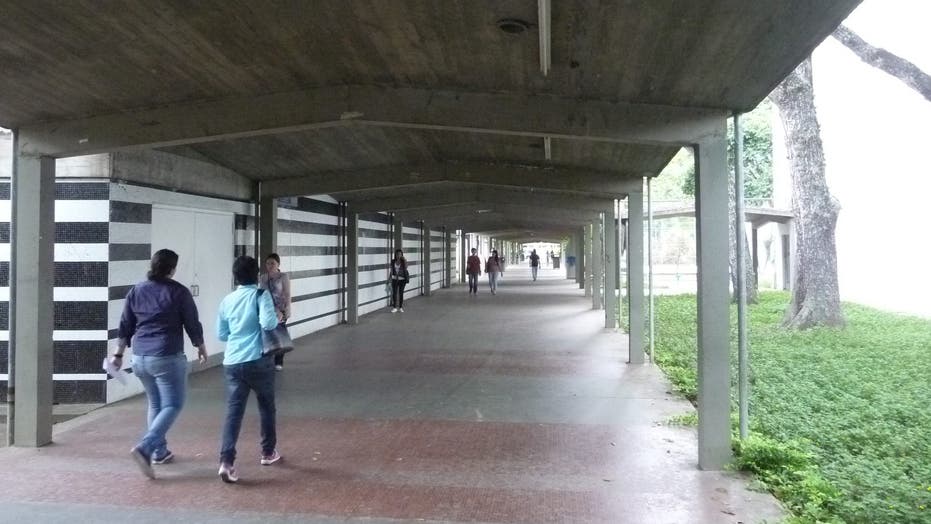CARACAS – The school year simply didn’t start for more than 300,000 college students across Venezuela, amid a widespread faculty strike that has closed down 18 public universities.
What roughly 40,000 teachers are demanding is not only a salary raise that reflects the 150 percent inflation rate projected for this year – they are also adamant that they are provided the resources and materials that they need to operate.
According to Amalio Belmonte, administrative secretary of the Central University of Venezuela (UCV), universities in Venezuela are going through their worst crisis in almost six decades.
“Labs don’t have basic resources, we don’t have money for investigation and other academic activities and professor can’t live with their low salaries,” he said referring to the conditions at UCV, the largest university in the country.
Belmonte told Fox News Latino that universities are considering a permanent shutdown before the year ends if the problems are not solved. Also, he said the strike may expand to the graduate programs and to the administrative personnel, which are currently still operating.
Last week, the government of Nicolas Maduro released the 2016 national budget with a 4.5 billion bolivars allotted to UCV, an amount that translates to $5.7 million at the current black market exchange rate.
Belmonte said they need at least 13 billion bolivars to operate.
“They gave us just 34 percent [of those 13B]. In 2015 they approved 46 percent of what we needed,” Belmonte said. “They want to financially kill the universities,” he added.
Last month ago faculty members across Venezuela got a 120 percent, roughly a third of what they were expecting.
Still, college teachers in Venezuela earn as little as six times less than their peers in Colombia, Brazil, Mexico and Chile, academic authorities said. The most experienced ones are paid the equivalent of $100 a month — thousands have already quit teaching altogether.
Between 2010 and 2014, 1,200 faculty members left the UCV, while more than 400 stopped working in the Simon Bolivar University, the second largest public institution in Caracas.
Tulio Olmos, vice president of the UCV´s Federation of University Professor, told FNL the drain seems unstoppable.
“Ecuador’s Prometheus program is offering a $5,000 monthly salary to teachers. Many of our professors are taking this opportunity to leave the country,” he said.
Meanwhile, students are concerned and annoyed for the semester delay but some say they understand the reasons for the strike and actually support it.
“This is the government’s responsibility. They have known this situation for years and they haven’t done anything to resolve it,” said Hasler Iglesias, president of the UCV’s Students Federation. “We have to protest peacefully to make a change possible,” he said.
Students and teachers even joined forces in a few public demonstrations this month to try and force a solution. But the government has not been responsive.
Last week an “open class” was held on the street in front of the entrance of the Ministry of Science and Universities. When they tried to repeat it the next day, military personnel blocked the building.
Also last week, UCV students and professors who were planning to hold a protest rally weren’t allowed outside the campus by National Police armed with tear gas.
“They pushed us with their shields and one teacher was taken to the hospital with an allergic reaction,” said Paula Davila, a student who was in the protest.
Despite these angry reactions, students and faculty say that they will keep holding demonstrations in an effort to preserve the universities.
“We will be on the streets everyday with different kind of activities. We will announce them in short notice to avoid the authorities,” Iglesias explained.

